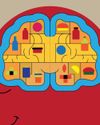
ON JANUARY 29, during his monthly radio programme Mann Ki Baat, Prime Minister Narendra Modi highlighted the issue of electronic waste (e-waste) accumulation in India. He referred to a report by the UN, stating that a staggering 50 million tonnes of e-waste is discarded annually. Modi brought out the context of this scale by pointing out that the weight of all commercial planes ever constructed put together would be less than that of the e-waste being generated. In fact, he likened the rate of e-waste disposal to discarding 800 laptops every single second.
The PM’s decision to address the mounting problem of e-waste is not without reason. India currently ranks third among the largest generators of e-waste globally, behind only China and the US. The volume of e-waste in India has witnessed a significant surge—from 700,000 tonnes in 2017-18 to 1.6 million tonnes in 2021-22 (see chart). This explosion is being fed by a parallel explosion of electronic goods’ consumption in India, with over 17 million TV sets, 148 million smartphones, 14 million refrigerators, 19 million audio devices and 6.5 million washing machines being sold across the country annually and growing, according to industry experts.
Bu hikaye Business Today India dergisinin June 25, 2023 sayısından alınmıştır.
Start your 7-day Magzter GOLD free trial to access thousands of curated premium stories, and 9,000+ magazines and newspapers.
Already a subscriber ? Giriş Yap
Bu hikaye Business Today India dergisinin June 25, 2023 sayısından alınmıştır.
Start your 7-day Magzter GOLD free trial to access thousands of curated premium stories, and 9,000+ magazines and newspapers.
Already a subscriber? Giriş Yap

"Do what's best for employees"
BEST ADVICE - PANKAJ JATHAR | CEO | NIIT LTD

Your Palate for 2025
What's in store for you in the New Year when you go out for a meal or a drink? We ask industry experts to predict F&B trends for 2025

"RBI'S STANCE SHOULD BE TO KEEP THE RUPEE MORE VOLATILE"
Axis Bank Chief Economist Neelkanth Mishra talks about the rupee, quantitative easing, the Trump impact, and more

"We should strive towards two non-zero GST rates"
Arvind Panagariya, Chairman of the 16th Finance Commission, on further reforms in the economy, the Nehruvian era and its impact on policymaking, cash transfers, and more

A GENERATION MAROONED
This generation is creating new grammar for social and professional existence. They are reimagining the very concept of work, identity, and social belonging

A TIME OF UNCERTAINTY AND OPPORTUNITY
A look at the key trends that will redefine how content will be created, distributed, and consumed

Consciousness Shaping Consumption
India has a dynamic and discerning consumer base, whose consumption pattern is experiencing a significant transformation

THE NIFTY ELEPHANTS
The composition of the Nifty 50 index has undergone notable changes in the past 30 years, with only 11 companies consistently remaining in the index. It is expected to undergo further changes in 2025 with the entry of new-age companies like Zomato

REDEFINING THE DIGITAL AGE
For Bitcoin, its future lies not as a currency but as a cornerstone of the modern financial ecosystem

THE FUTURE OF HEALTHCARE
As AI advances, so will its role in health insurance. In the future, it shall perform a variety of complex tasks, making it more accessible and aligned with individual needs